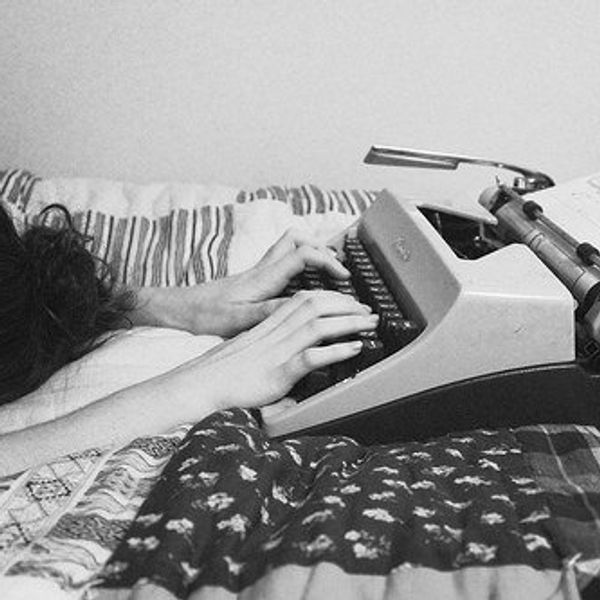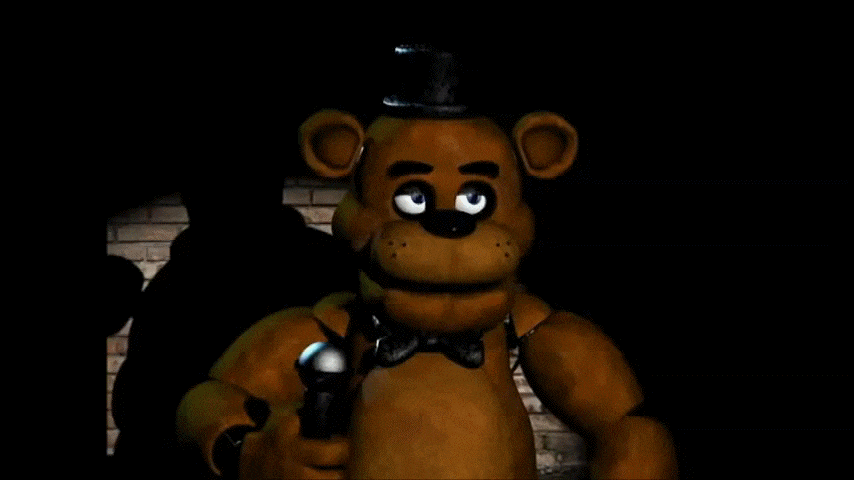It was happening again.
The blinking cursor mocked me like a bully. In this instance, it had won and stolen all of my willpower as if it was my lunch money. I was its victim, and the frequency of its blinking seemed to increase by the second. It was all in my imagination like it always was, but nobody was there to vocalize that to me.
It wasn’t just the cursor that was haunting me and telling me that my task would never get accomplished. As I stared down at a different tab on my computer, I had launched each track in my musical playlists in an effort to evoke a mood that would be at least a little inspiring. Whether it was the smooth voice of Damon Albarn or the sweet, somber notes of a movie score, the music player was judging me while I mixed genres and pressed the skip button in a frustrated manner. In my mind, I would blame my poor song choice for not helping me churn out words like a well oiled machine. In reality, I was making up an excuse for myself for falling into the same patterns that I always did.
In a silent rage, I closed the document with a sudden click. As confident as I had been five minutes prior to my attempt at opening a new chapter with a zinger of an intro, I had given up. Little satisfaction came to me from shutting off the program, but for some reason I found myself doing it again and again.
The blinking cursor was gone now, but it wasn’t gone. The relief had arrived but, at the same time, I felt guilt bubbling down in the pit of my stomach.
It, which is known as writer’s block to the general public, has been something that I’ve struggled with since I started writing.
People who aren’t writers have experienced writer’s block every now and again. From not being able to write that one important paper that’s due the next day to not knowing how to attempt to compose a poem for your first English class, we all have had our bumps when it comes to conquering feelings with words.
However, I feel like every person is different when it comes to writing, me included. Ever since I was young, I had a document open on my computer and I couldn’t wait to write. Words spilled out onto the virtual paper and I typed with just two fingers. I inserted petty clipart to serve as illustrations for my heroines and talking animals, all of which possessed out of this world characteristics and names that would make my mother’s eyebrows quirk up in confusion.
Things changed, though.
By the time I learned to type with all ten fingers, I realized that writing wasn’t throwing words on a page and smiling about it. I could make my characters larger than life and fall in love with them myself, but that didn’t guarantee that everyone else would feel the same. Whether I liked it or not, writing was real work. As much as I wanted to whine and quit, that cursor still blinked back at me and dared me to keep going.
And, as if to spite it, I did.
It took me a long time to conquer my fear of writer’s block. It was like an enigma that I couldn’t decode no matter how hard I struggled.
To this day, I’m not sure when I thought it clicked in my mind. Maybe it was on a warm summer night as I felt the heat radiate through my window. Perhaps it was during the third month of the year when I could smell spice on the spring wind. It might have been a time when the coldness made me shudder while I pressed my laptop up against my legs for warmth. Whenever it had been, I had learned to get rid of writer’s block. Or, at least that’s what I thought that I had done. In the moments when my brain formed the best words possible from just twenty six letters, I felt infinite. My fingers would move fast over the keys and I would triple check my work. Miraculously, I felt like there were no errors. Everything was perfect in those late night moments and I took a breath. I had to be no older than fourteen at the time. I was so innocent yet motivated. When I look down at my younger friends who go through this phase, I can’t help but laugh now. The sudden bursts of activity could only stay around for so long.
Sometimes they would last for an hour. Other times, I felt like I could write for months on end.
Then, as if my luck had run out, writer’s block returned. My supposed method of getting rid of it was not foolproof. I thought that I had cracked some sort of Navajo code dialect and that writing really was easy like all of the professional authors claimed. Instead, I would cry over my computer, wondering why so and so could write better than me or why I seemed to crumble once I reached the tenth chapter of a bleak novella that lacked a backbone.
However, it didn’t take me long to learn that this was not the case. Writing was not easy nor would it ever be. If it was, then everyone would be a composer or an author or a playwright. There would be no writers; everyone would simply be good enough to get published or win prestigious awards. They would be able to earn the title of author whether they deserved it or not.
By the time my middle school years had ended, I felt like I had “grown” as a writer. I had learned as much as I could from what my lackluster English teachers had told me. I still wrote, but my word output would soon begin to reach new heights when I started attending high school.
I didn’t consider writing to be anything more than a hobby until my sophomore year, which was a turbulent time. I participated in a joint writing project with my best friend, created an anti-hero that was unique in her own way and even began my own monster of a novel. I felt like I had achieved the one thing that I had desired since I began typing meaningless words onto a page when I was six. People began to like my work and read it. At that time, I wrote not only for myself, but also for my readers, who kept up with my work on a publishing website. It was then that I realized that although writer’s block was an omnipresent figure, there really was a way to defeat it.
It was also during my sophomore year that I cracked the code to defeating the enemy known as writer’s block. The answer was simple and it had been hiding under my nose the entire time. I had blinked and missed it on more occasions than I could count. In fact, I still sigh whenever I think about how blatant it was.
The most foolproof method of getting rid of writer’s block is to write.
I remembered this as I sat at my computer in agony one day within the past few months. I stared at my desktop background, wondering if I should start again.
“No,” I mumbled to myself. “I can’t get anything done anyway.”
I checked my phone.
No new text messages.
No emails with the exception of a few old reviews that had been posted on my novel a few days prior. They had been frighteningly positive despite the fact that I was struggling with putting any more words together for my readers.
I sighed and hovered over the Microsoft Word icon one last time. After stopping all music, I clicked.
The whiteness of the simulated paper stared back at me. My challenger, who was waiting with diligence, blinked with excitement. My document, which was nearing three hundred pages, was looking on with fear. It waited for me to defend it and to prove the cursor wrong. It wouldn’t be discarded like the rest.
It would be finished.
I typed a few words and got a feel for what I was trying to accomplish. Some words didn’t fit in certain places while others possessed that natural flow that readers and writers both crave. As I wrote dialogue, I spoke it aloud and tried to figure out what it would sound like if the characters said them. I set a mood and made sure the reader would feel it inside and out.
They would feel the heartbeat of the Commander as she stormed the enemy compound. They would hear her screams as a gunshot wound whizzed past her and towards her team. And, most importantly, they would gasp in relief when the bullet hit the wall instead of her alien comrade. As nerdy as a sci-fi novel could get, I still poured my heart and soul into it.
For what felt like the umpteenth time, I clobbered writer’s block and shoved it into a corner.
This time, though, I had done it the correct way.
I wrote.




















